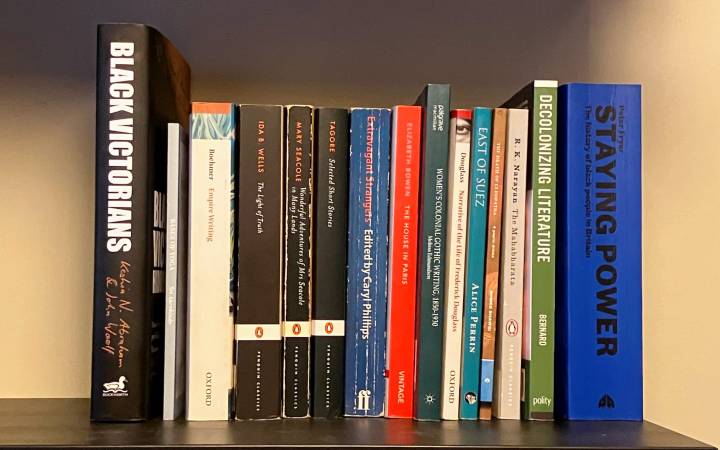Estranged Students Solidarity Week – how Kingston University supports estranged students throughout their studies
Posted Friday 27 November 2020
 Kingston University's KU Cares programme supports students who have been estranged from their families.
Kingston University's KU Cares programme supports students who have been estranged from their families.
Estranged Students Solidarity Week raises awareness of this group of young people, highlights some of the challenges they face and explores how we can be an ally to students experiencing family difficulty or estrangement. Access and support adviser for the KU Cares scheme Lydia Ansong explains how the programme supports students throughout their time at Kingston University.
Estrangement is when a person has lost or broken contact with their family. People can become estranged for any number of reasons, such as abuse, a clash of beliefs, religion or values and parental rejection of their LGBTQI+ identity among many others. This can be a long slow process, or a sharp and sudden break. For young students who experience estrangement from their parents, this often results in their university being their only network of support with the absence of a ‘safety net'.
Unlike a lot of students, the estranged learners we support through KU Cares do not have the security of family and the comfort of knowing that they will be there to support them when things get tough - even if it's just in regards to borrowing a bit of money or having a parent message to see if they're ok.
Society places a lot of value on family, especially around Christmas time, because of this, estrangement is often misunderstood and stigmatised leaving some estranged students feeling unable to speak openly about difficult family situations at university for fear of judgement or rejection.
Research undertaken by Stand Alone revealed that 41 per cent of students had considered withdrawing from their course or suspending their studies due to money pressures, stress and mental health struggles, 14 per cent actually had - a rate three times higher than the average student.
In 2012, KU Cares evolved to also support students who are estranged from their parents. KU Cares, a programme that will celebrate its 15th year in 2021, currently support just over 80 estranged students alongside students with experience of local authority care, young adult carers, and asylum seekers through our Sanctuary Scholarship awards.
In 2016, Kingston University was one of the early adopters of the Stand Alone Pledge, demonstrating a commitment to supporting estranged learners through their studies. We now have a package of practical support including bursaries and access to year-round accommodation. There are two Access and Support Advisors on the scheme who work to support all KU Cares students from the point of application, during their studies, and through to graduation.
My role as the designated contact for estranged students is to tailor support to each individual student's needs. This can be anything from helping them with their Student Finance, to helping them access wider university support services, to advocating on their behalf with university and external services.
Additionally, in recognition of the disproportionate impact of the Covid-19 pandemic on students without family support, KU Cares have taken specific targeted steps to address this, for example a tailored KU Cares emergency grant scheme for estranged students. Some students may experience estrangement during the course of their studies, and we work collaboratively with other University Services to ensure that students are fully supported during this period.
This year's Estranged Students Solidarity Week is focused on being an ally to estranged students. Allyship is a form of solidarity where you recognise that, while you do not have lived experience of one's struggle, you understand that they face adversity, are willing to learn more about the issue and you will support them where you can. There are numerous ways in which you can demonstrate allyship - for example by normalising talking about estrangement and using inclusive language.
Sometimes even innocent or well-meaning questions can put estranged students in a position where they feel excluded, stigmatised, or judged. Keeping language more open and inclusive can help to avoid such feeling. An example of this could be instead of asking ‘What are you doing for Christmas?' or ‘Are you going home for Christmas?', ask ‘What are you looking forward to over the next few weeks?'. If a student is worried about being isolated or alone over the festive period, encourage them to reach out for support from the University.
If you're interested in finding out and learning more about some of the wider context and issues surrounding estranged students, Stand Alone have some excellent resources for both staff and Students.
Look out for the hashtag #WithEstrangedStudents throughout the week used by institutions to raise the profile of students without family support via social media.
If you have any questions about the work we do at Kingston, feel free to email us at kucares@kingston.ac.uk.
- Find out more about Kingston University's KU Cares programme.
Contact us
General enquiries:
Journalists only:
- Communications team
Tel: +44 (0)20 8417 3034
Email us



